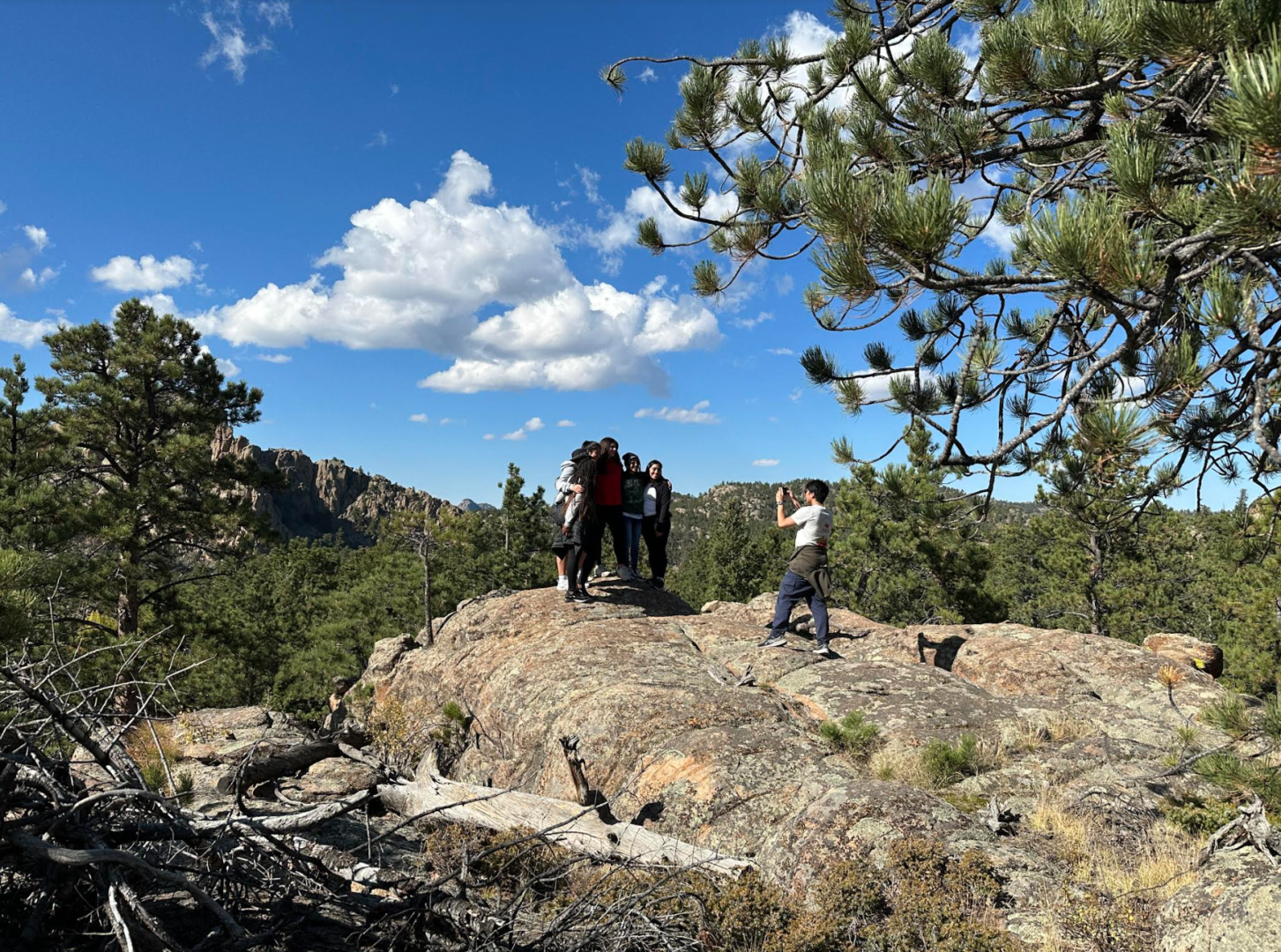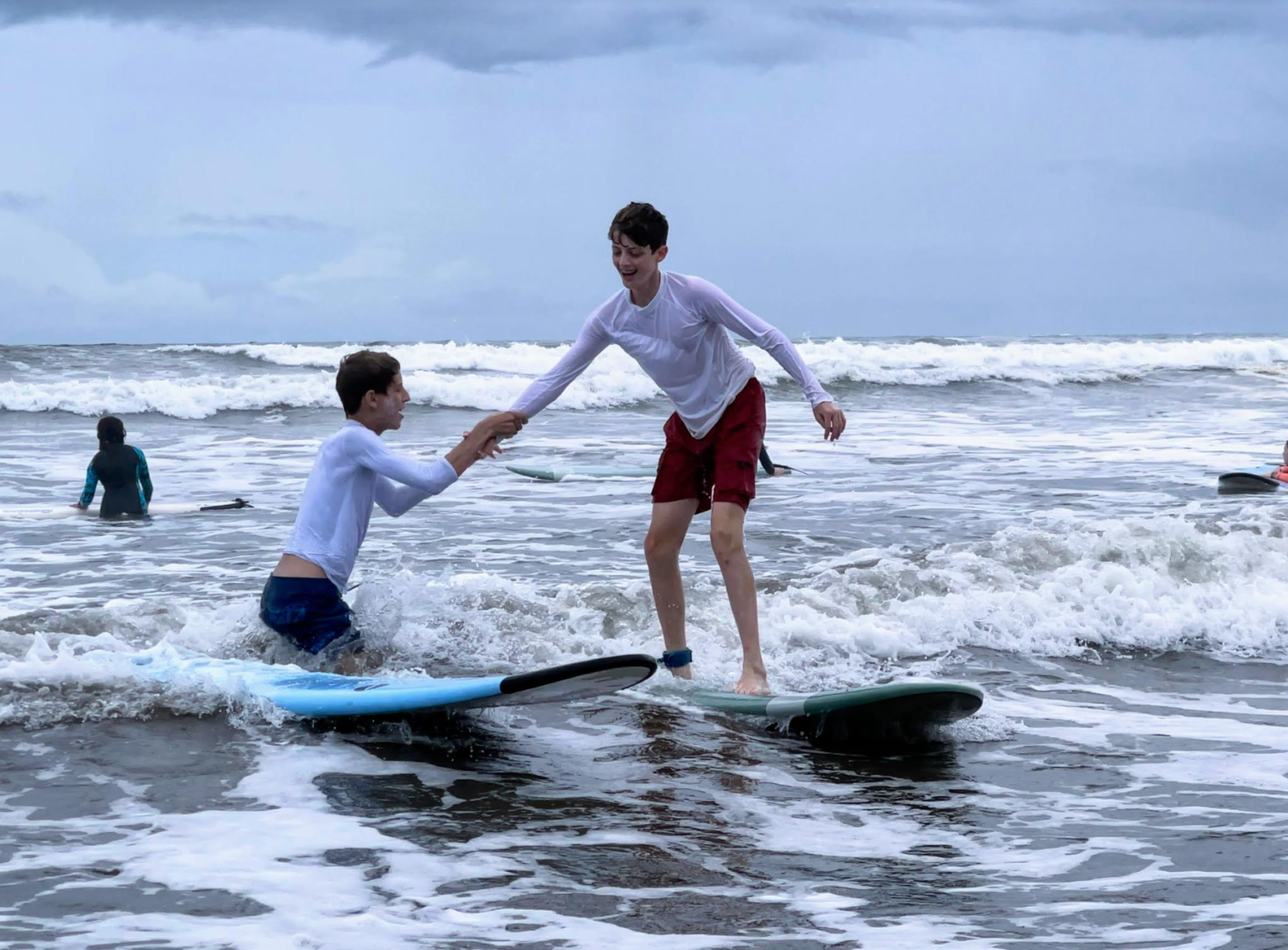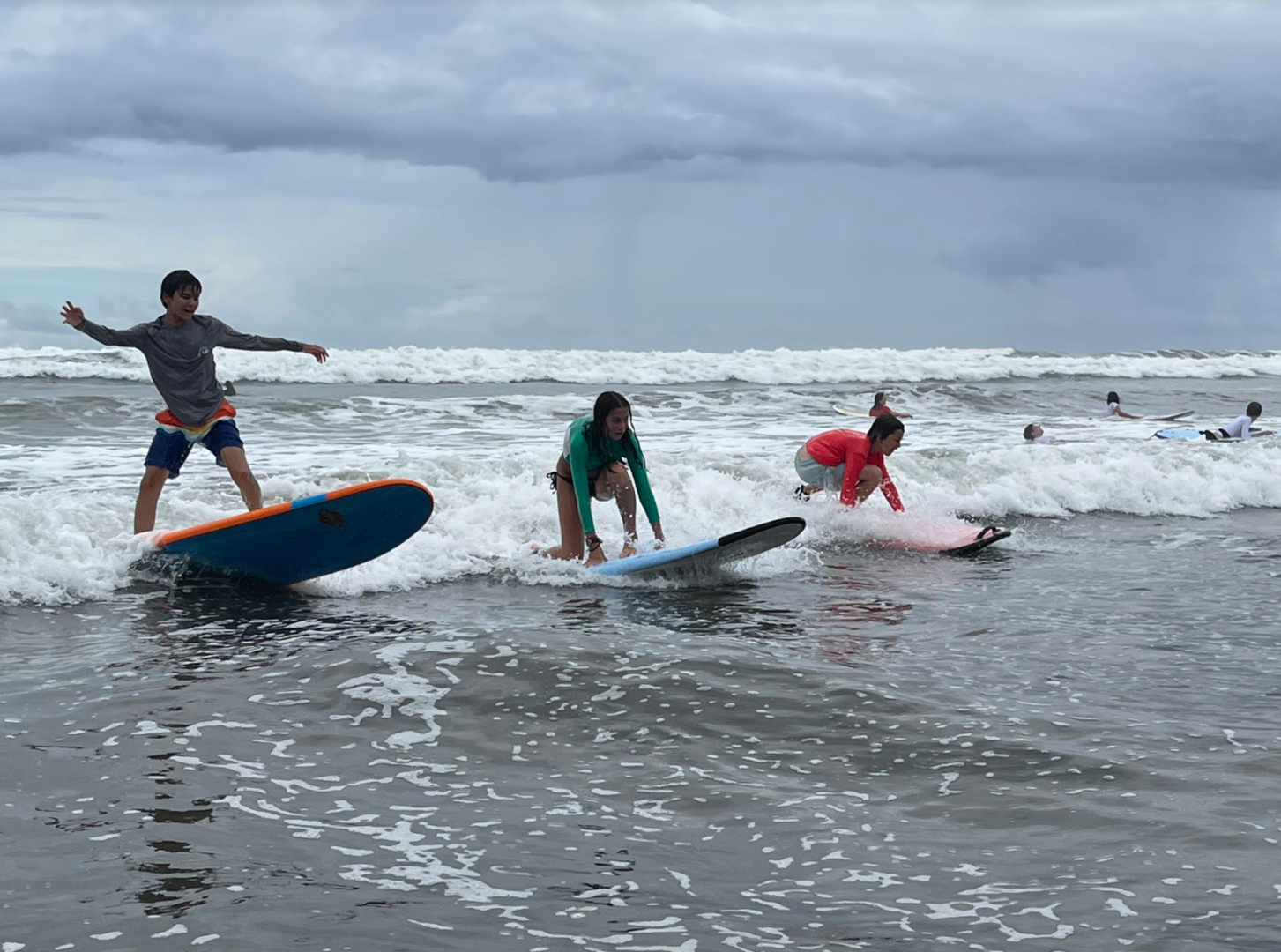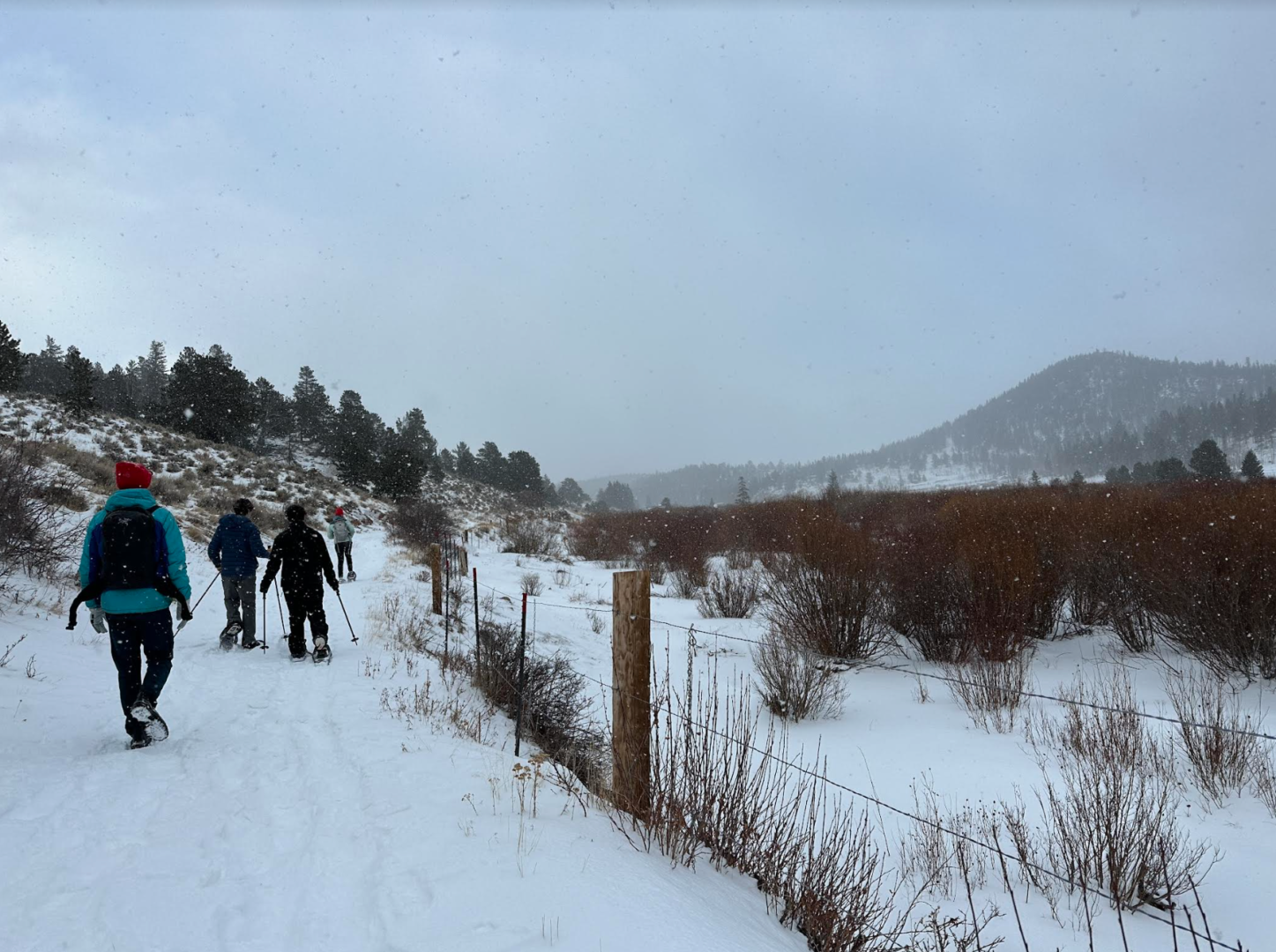Spring quarter is always exciting. The weather is getting warmer, and the entire campus comes to life as if it has been hibernating. At the same time, it is a quarter filled with happy tears and regrets. While some graduates are excited about their impending future, others ask, what now? The truth is that we are more uncertain about the future than ever. Social mobility is declining. Tuition and cost of living have skyrocketed. We are less likely to earn more than our parents today than 50 years ago. The paths our parents embarked on have been overtaken or revolutionized by the 4th industrial revolution. There is no longer a single path to success and the pursuit of happiness.
So what do we do? What do I do? How can I gain upward social mobility and establish some certainty in this ever-changing landscape? This brings me to an email I wrote recently to Chancellor Haefner after returning from a weekend at the Kennedy Mountain Campus (KMC).

“Dear Chancellor Haefner,
I was honored to be a part of the first ascent experience as a 4D discovery leader this past weekend. The whole experience was incredible, fun and just all-around amazing. Many traditions make DU unique, and KMC is one of them. There was a rather unique experience that I hope you will take a moment to read.
During the afternoon rotation, I joined the hiking group and ventured into the Roosevelt National Forest with our students. Jim, a very knowledgeable and energetic local partner, was our guide. Having done this hike before, I expected a relatively uneventful walk along the shaded trail to the meadow, and that is not what happened at all. About a quarter of a mile into the hike, Jim took a turn and led us into the woods away from the trail. We ventured through tall bushes, climbed over massive logs, and scaled the side of the mountain. Eventually, we ended up at the foothill of the “elevator” mountain and found ourselves surrounded by breathtaking views and wildlife.
I loved the adventure and the knowledge Jim brought to the group. The students, however, disliked Jim’s decision. They felt uncomfortable that we were walking “mindlessly” away from the trail and that Jim was not giving them a concrete answer on the exact destination. The group sometimes refused to keep going, and Jim had to push the students continuously. Many expressed their dissatisfaction openly and even made fun of Jim.
As we walked back to the cabins, Jim asked me, “Steven, are we adventuring, or are we accommodating?
This question left me speechless. Perhaps, our job is to listen to the student’s needs and provide them with a clear path they feel comfortable with. At the same time, off the beaten path is where the beauty lies. On the hike, our students stopped stressing about upcoming exams or roommate disputes and looked into the wilderness. When the rock was too big to tackle alone, they relied on each other. Through it all, they met new friends and gained an experience that echoed throughout the evening. And when they spoke of this experience to their friends, it was with a tone of joy and pride.
What should be the mission of a university like DU?
Are we accommodating our students’ requests so they are always happy and feel certain about the present? Or, are we pushing them into the unknown of tomorrow to flip over century-old rocks, track moose and find themselves at the top of a hill they never thought they could climb? While we constantly hold conferences and give talks on the importance of exploration, have our actions been too focused on accommodating? Has the concept of uncertainty become looked down upon or even altogether avoided? Is college supposed to be a bubble shielding students from all the risks and challenges they don’t yet want to face?
In short, how do we address uncertainty?
This past summer, I was an instructor for an Oregon-based adventure company called ARCC. Growing up, nature and culture have always fascinated me. For me, sharing a cup of hot tea with a stranger under the thin tin roof of a rusty Madagascar shed taught me more than an entire year of AP classes did. Travel has been a happy place for me, and sharing that with the next generation of explorers was like a dream come true.
Travel is also full of uncertainty. Planes can be delayed, buses can break down and sometimes things will go wrong. Leading a program for the first time has taught me many things, such as how to unclog a toilet and how to play games adolescents enjoy today. More importantly, it taught me to face uncertainty. There is no handbook for all or even most of the situations you encounter. Programs are always fluid. Decisions you make can be the difference between a day of learning and a day of waiting. Trusting in yourself can be challenging. Inevitably, you are going to make a mistake. Those mistakes don’t define you. Instead, they are the passage through uncertainty. Being willing to make a mistake and accepting that you were wrong is perhaps the most powerful tool to overcome uncertainty.
I will always remember watching one of the students (8th graders) learn to surf in the blue oceans of Costa Rica. They had never surfed before and struggled to catch the waves on the first day. They probably fell dozens of times learning how to stand up on the surfboard. Instead of switching activities or just joining their friends for a conversation, they kept going. Words can not describe the joy on their face when they stood up for the first time. What they represent is much more than perseverance. It is a willingness to fail and try things they are unsure about. Precisely because of that, they succeeded. Sadly, moments like this are rare. Like our students on the Ritchie trail, my students on the program wanted to avoid uncertainty. They wanted to know where we were staying every night, what we were having for every meal and even how many hours the bus ride would be. When the itinerary has to be changed or modified, it is often met with great dissatisfaction.


In a strange way, the emotions our students expressed at KMC are the same as what the 8th grader expressed during my summer trips. From students who are just entering high school to those who are in the workforce, there is a genuine and rational fear of uncertainty, something entirely justified.

In those moments, I listened and validated their concerns. I tried everything possible to make it less scary and ensure their safety. At the same time, I hope they were uncomfortable and experienced what it’s like to be uncertain. More importantly, I want them to remember how they overcame the uncertainty. Whether that is asking a friend to lift them onto a boulder or keep falling from the surfboard, they have once overcome uncertainty and achieved something.
Perhaps, the only aspect of the future we can guarantee for these students is its uncertainty. Students will change their majors, fall out of love, experience anxiety, fail an exam and become overwhelmed by the prospect of their social mobility. In my own life, DU was not even a college that I applied to in my senior year of high school. I transferred colleges three times and had many shares of mental struggles. I discovered friendship and love in the most unlikely of all places, and the place that looked like a perfect fit initially turned out to be not so wonderful.
At the University of Denver, we call our students to explore a life of purpose. There is no better demonstration of that than the KMC hike. If the students had taken the paved trail, it would have also meant they would see the same meadow dozens of other student groups have seen. The meadow was beautiful but could not provide an essential part of wilderness education: the ability to explore. Without a clear path, the students surveyed the land and made their own trail. In short, they overcame the challenge and took the less traveled path, which rewarded them with a spectacular view.
I think no one has better-defined uncertainty than the former president of Dartmouth College, Dr. Kim, “Uncertainty means that nothing is predetermined. Uncertainty means that the future is yours to shape — with the force of your will, the force of your intellect and the force of your compassion.”
I don’t pretend to have the slightest clue on the best way to balance uncertainty and comfort in today’s higher education. I know you and the brilliant members of the DU administration are working hard every day to get there.
All I know is that we must hurry.
–
Yours Sincerely,
Steven Gu “











